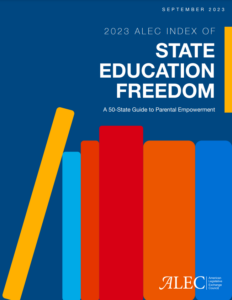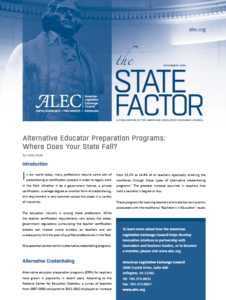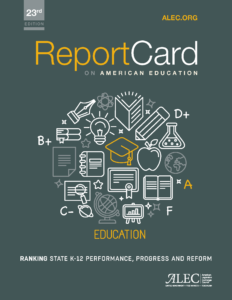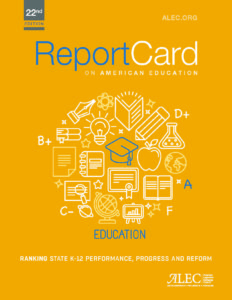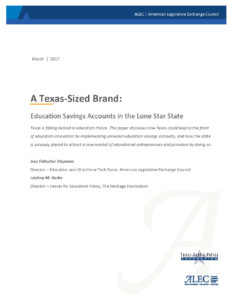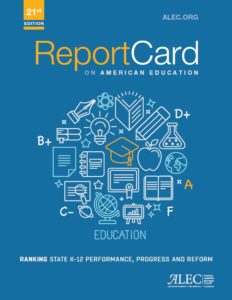Education
Key Points
- Citizens, legislators, and regulators should separate the concept of public education from the monopolistic delivery system and embrace 21st-century methods of connecting students with learning experiences.
- Legislators should improve or pass charter school laws, striking a balance between innovation, autonomy, and accountability.
- Legislators should create or expand the type(s) of school choice program that best suits their state: vouchers, tax credit scholarships, homeschooling, and education savings accounts.
- Legislators and regulatory agencies should be wary of attempts to re-regulate innovative and/or private educational options, which could expose them to the death of the thousand bureaucratic cuts and sacrifice the freedoms that allow them to succeed.
- Institutions of higher education should be transparent about what outcomes students can expect and how much money they will have to spend or borrow.
An excellent education has long been recognized as key to the American Dream. Unfortunately, the current monopolistic and expensive K-12 education system is failing our students, leaving them unprepared for college, careers, or life. Similarly, our higher education system is leaving students with higher debt burdens and fewer career guarantees than ever before.
While the left argues that our ailing public education system can be fixed with ever-greater quantities of taxpayer dollars, the more than $600 billion we currently spend nationwide reflects a large increase in funds over the last 30 years, in exchange for total stagnation – or worse, declines – in achievement. On the college level, subsidies meant to help college students struggling to pay tuition have instead caused prices to skyrocket well above inflation.
Instead of throwing more money at the problem, it’s time to let parents take back control over their children’s educations by allowing them to apply competitive pressure to schools and educational providers. Innovative, parent-empowering choices such as charter schools, voucher programs, tax credit scholarships, homeschool, and education savings accounts allow each child the opportunity to reach his or her potential. In higher education, greater transparency is needed to ensure that students and parents know what they are paying for, and with what prospects they are likely to graduate.
Instead of endless top-down mandates, these revolutionary inroads into the education system are coming from the states. Forty-two states and the District of Columbia have laws on the books allowing charter schools to operate, while half the states have some form of private school choice program. The states should continue to expand parent choice and push educational institutions to compete with each other to provide the best product, just like providers of any other service.
Model Policies
-
Statement of Principles on School Facility Safety and Security Final
Therefore, consistent with these objectives, we have developed the following principles regarding school facility safety and security: (i) Schools are a vital part of our national critical infrastructure and need to be protected accordingly. Nationally, there are about 130,000 K-12 public schools, serving roughly 56 million students and over 6…
-
Virtually Administered Assessments Act Final
Section 1. (A) Any virtual school or program operating pursuant to [insert statutory reference] may administer any state assessment required under [insert statutory reference] in a virtual setting that aligns with the students regular academic instruction, provided that the following conditions are met: (1) The student…
-
The Science of Reading Act Final
Section 1. Definitions A. “Science of reading” means evidence-based reading instruction that focuses on phonemic awareness, phonics, fluency, vocabulary, and comprehension and can be differentiated to meet the needs of individual students. B. “Three-cueing model” means reading instruction that uses meaning drawn from context, pictures, or syntax as the primary…
-
Teen Social Media and Internet Safety Act Final
(1) Definitions. For the purposes of this chapter, the words defined in this section have the meaning given. (a) “Internet” means the combination of computer facilities and electromagnetic transmission media, and related equipment and software, comprising the interconnected worldwide network of computer networks that employ the Transmission Control…
-
The Opportunity High School Diploma Program Final
Section 1. Definitions (a) “Program” refers to the Opportunity High School Diploma Program. (b) “Institution of higher education” means a college, university, or similar institution, including a technical or business school, offering postsecondary level academic instruction that leads to an associate or higher degree. Section 2. Purpose (a) The…
-
The Career Transparency Act Final
Section 1. Definitions (a) “Institution of higher education” means a college, university, or similar institution, including a technical or business school, offering postsecondary level academic instruction that leads to an associate or higher degree. Section 2. Transparency in Secondary Offerings (a) Prior to the start of each school year,…
Press Releases
-
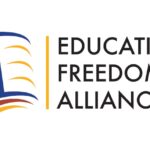
ALEC Announces Launch of Education Freedom Alliance
Arlington, VA – Continuing the momentum of National School Choice Week, the American Legislative Exchange Council (ALEC) is proud to announce the launch of the Education Freedom Alliance (EFA), a…
-
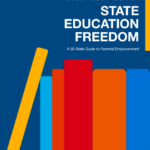
ALEC Releases 50-State Education Freedom Rankings
Arlington, Va. – The American Legislative Exchange Council (ALEC) is proud to announce today’s release of The ALEC Index of State Education Freedom: A 50-State Guide to Parental Empowerment. Evaluating…
-

New Report: Families See Improved School Choice in 2017 AZ, FL and IN remain top performers; NV slips in rankings
FOR IMMEDIATE RELEASE Contact: Nicole Murphy, nmurphy@alec.org, 858.205.5432 Arlington, VA —The American Legislative Exchange Council (ALEC) today released the 22nd annual…
-
Education Coalition Applauds Secretary DeVos, Stresses Importance of Educational Freedom in Joint Letter
FOR IMMEDIATE RELEASE Contact: Taylor McCarty tmccarty@alec.org 734-752-5646 Education Coalition Applauds Secretary DeVos, Stresses Importance of Educational Freedom in Joint Letter Arlington, VA (June…
-
Annual Report Ranks States on Quality of Education
For Immediate Release Contact: Ashley Pratte apratte@alec.org 571-482-5030 Arlington, VA (January 24, 2017)– An annual report released by the American Legislative Exchange Council (ALEC) ranks all…
-
National Education Report Card Ranks Massachusetts First, West Virginia Last
FOR IMMEDIATE RELEASE Kaitlyn Buss American Legislative Exchange Council 202.742.8526 kbuss@alec.org National Education Report Card Ranks Massachusetts First, West Virginia Last American Legislative Exchange…

